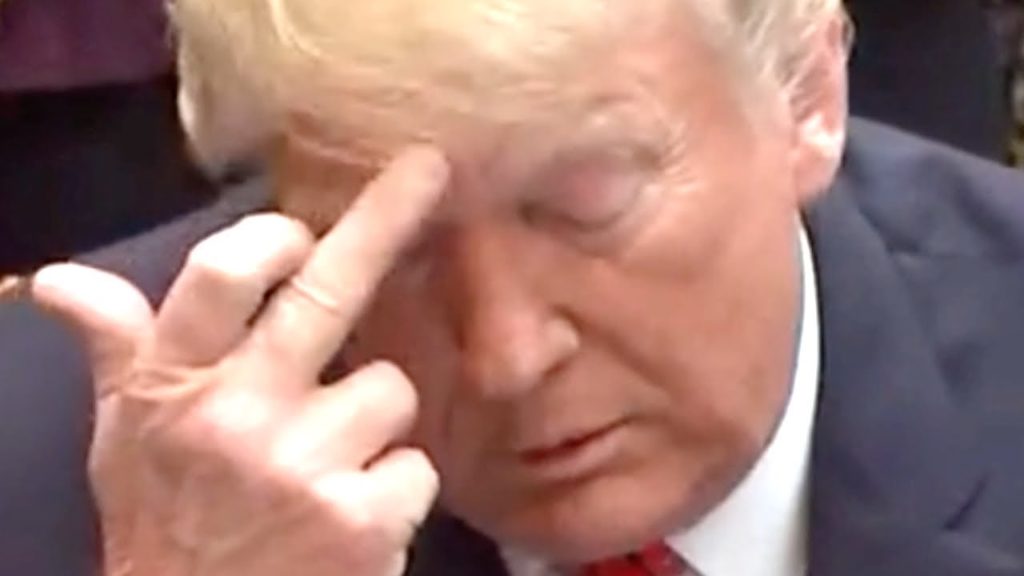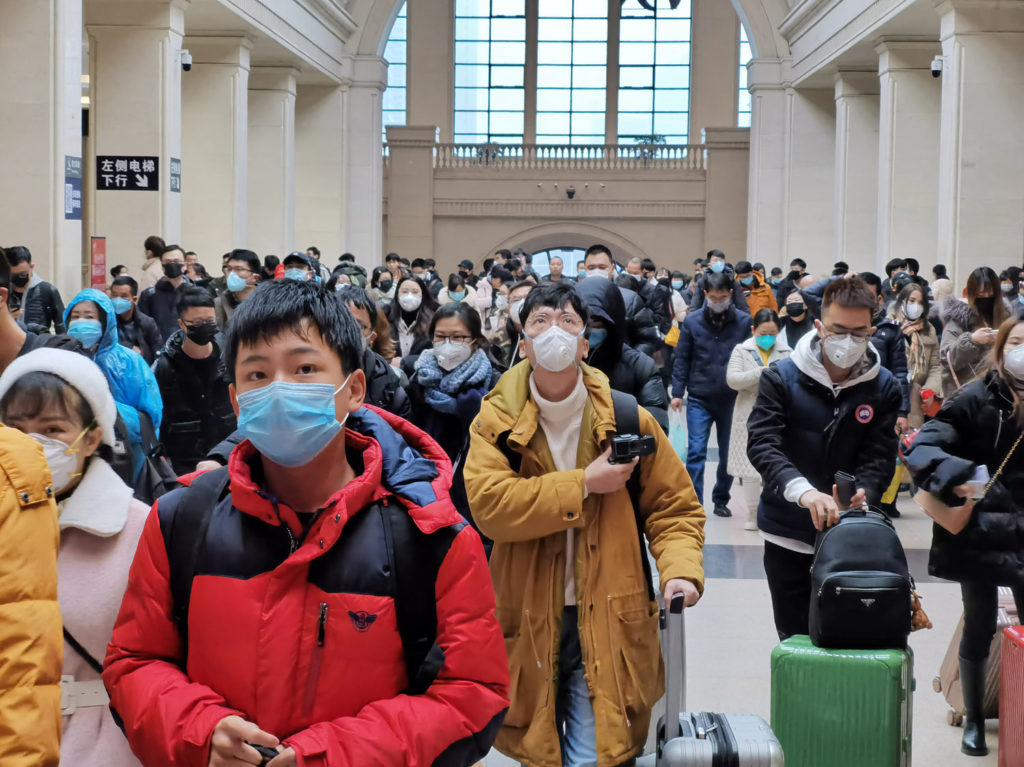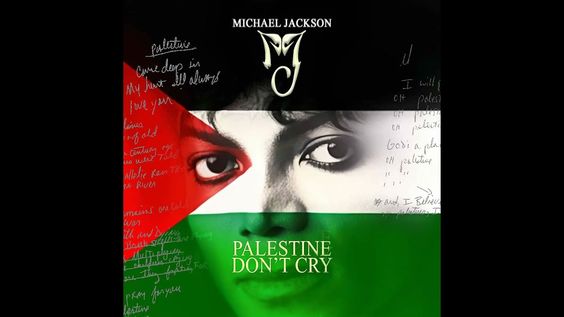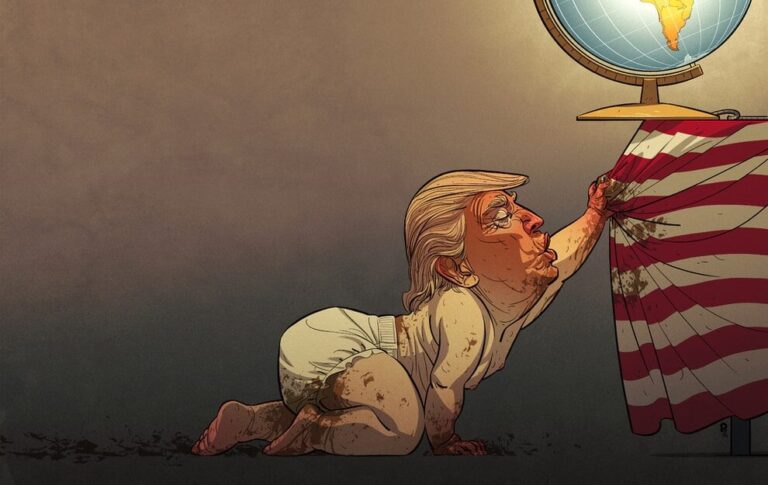I could stand in the middle of 5th Avenue and shoot somebody and I wouldn’t lose any voters, ok? it’s like incredible.
Trump said at a rally at Dordt College in Iowa on Friday 23 January 2016.
It turns out Trump is even more of an asshole than we thought. pic.twitter.com/4z0DrGuPqb
— Claude Taylor (@TrueFactsStated) December 1, 2021

On Tuesday 14. April, President Trump said he has directed a halt in U.S. funding for the World Health Organization. He said the agency has “mismanaged” the pandemic and been “covering up the spread of the coronavirus” it has been slow to respond to the crisis and is “China-centric.”
A timeline of coronavirus statements from President Trump and WHO:
January 5. 2020
The World first heard of the Coronavirus (COVID-19) when The World Health Organization reported “Pneumonia of unknown cause” in Wuhan, China. – WHO advises against the application of any travel or trade restrictions on China based on the current information available on this event.
January 9.
The WHO released a statement announcing the source of the disease: “Chinese authorities have made a preliminary determination of a novel (or new) coronavirus, identified in a hospitalized person with pneumonia in Wuhan.” It added: “In the coming weeks, more comprehensive information is required to understand the current status and epidemiology of the outbreak and the clinical picture.”
January 14.
WHO officials gave conflicting signals about whether there is human-to-human transmission. At a press conference in Geneva, Maria Van Kerkhove of WHO’s emerging diseases unit told a Reuters reporter: “From the information that we have it is possible that there is a limited human-to-human transmission, potentially among families, but it is very clear right now that we have no sustained human-to-human transmission.”
WHO also told an NPR reporter that Van Kerkhove had been misunderstood and there was, in fact, no evidence of human-to-human transmission.
January 22. Trump in Davos:
We have it totally under control. It’s one person coming in from China, and we have it under control. It’s going to be just fine.
President Trump, none of his Davos delegates attended the sessions on the virus outbreak.

January 23.
WHO Director-General Tedros Adhanom Ghebreyesus said in a statement
“I am not declaring a public health emergency of international concern today. As it was yesterday, the Emergency Committee was divided over whether the outbreak of novel coronavirus represents a PHEIC or not. Make no mistake. This is an emergency in China, but it has not yet become a global health emergency. It may yet become one.”
January 24.
China has been working very hard to contain the Coronavirus. The United States greatly appreciates their efforts and transparency. It will all work out well. In particular, on behalf of the American People, I want to thank President Xi!
— Donald J. Trump (@realDonaldTrump) January 24, 2020
January 29.
At a press briefing in Geneva, Michael Ryan, the head of the WHO health emergency program, said that “the whole world needs to be on alert now. The whole world needs to take action and be ready for any cases that come from the epicenter or other epicenters that become established”.
The actions of the Chinese authorities have, he said, helped to slow the international spread of the virus, but it has not been halted: “The continued increase in cases and the evidence of human-to-human transmission outside China are of course most deeply concerning. Although the numbers outside China are still relatively small, they hold the potential for a much larger outbreak”.
January 30.
At a campaign rally in Iowa, Trump talked about the U.S. partnership with China to control the disease. “We only have five people. Hopefully, everything’s going to be great. They have somewhat of a problem, but hopefully, it’s all going to be great. But we’re working with China, just so you know, and other countries very, very closely. So it doesn’t get out of hand.”
WHO: Tedros announced that the outbreak had become a “public health emergency of international concern over the global outbreak of novel coronavirus.”
February 2.
In an interview with Sean Hannity on Fox News, Trump said, “We pretty much shut it down coming in from China.” His executive order banning anyone who has been in China in the previous 14 days — with exceptions, including for U.S. citizens, lawful permanent residents, and their close family members — went into effect.
February 4.
At a WHO briefing, Tedros urged that there be no travel bans. “We reiterate our call to all countries not to impose restrictions that unnecessarily interfere with international travel and trade. Such restrictions can have the effect of increasing fear and stigma, with a little public health benefit. … Where such measures have been implemented, we urge that they are short in duration, proportionate to the public health risks, and are reconsidered regularly as the situation evolves.”
February 10.
Looks like by April, you know, in theory, when it gets a little warmer, it miraculously goes away. I hope that’s true. But we’re doing great in our country. China, I spoke with President Xi, and they’re working very, very hard. And I think it’s going to all work out fine.
Trump, at a campaign rally in Manchester, N.H.
February 11.
To be honest, a virus is more powerful in creating political, economic and social upheaval than any terrorist attack. A virus can have more powerful consequences than any terrorist action, and that’s true. If the world doesn’t want to wake up and consider this enemy virus as Public Enemy Number 1, I don’t think we will learn our lessons.
At a WHO briefing, Tedros urged world leaders to give priority to containing the virus.
February 13.
In an interview with Geraldo Rivera, Trump characterized the threat of the virus in the U.S. by saying: “In our country, we only have, basically, 12 cases, and most of those people are recovering and some cases fully recovered. So it’s actually less.”
February 24.
The Coronavirus is very much under control in the USA. We are in contact with everyone and all relevant countries. CDC & World Health have been working hard and very smart. Stock Market starting to look very good to me!
— Donald J. Trump (@realDonaldTrump) February 24, 2020
February 26.
Trump cites a John Hopkins study claiming the US is the nr. 1 most prepared country for an epidemic.
When you have 15 people, and the 15 within a couple of days is going to be down to close to zero, that’s a pretty good job we’ve done.
Trump in a White House Press Briefing [sureal transcript from the WH web]
February 28.
The WHO raises the global risk of the coronavirus from “high” to “very high.”
March 5.
In a WHO briefing, Tedros praised China and the U.S. for taking “the right approach.”
In a Fox News town hall, Trump said, “It’s going to all workout. Everybody has to be calm. It’s all going to work out.” [also talks about de-regulations in EPA: “I want to have the cleanest air on the planet. I want to have the most crystal clear, beautiful water on the planet.” ]
March 10
In a meeting with Republican senators at the U.S. Capitol, Trump said, “This was unexpected. … And it hit the world. And we’re prepared, and we’re doing a great job with it. And it will go away. Just stay calm. It will go away.”
But be calm. It’s really working out. And a lot of good things are going to happen. The consumer is ready, and the consumer is so powerful in our country with what we’ve done with tax cuts and regulation cuts and all of those things. The consumer has never been in a better position than they are right now.
March 11
In an Oval Office address, Trump said: “Today, the World Health Organization officially announced that this is a global pandemic.”
“The vast majority of Americans, the risk is very, very low.”
Tedros said the WHO had “made the assessment that COVID-19 can be characterized as a pandemic.”
March 16
“You cannot fight a fire blindfolded. And we cannot stop this pandemic if we don’t know who is infected,” Tedros said at a briefing in Geneva. He added, “We have a simple message for all countries: test, test, test. Test every suspected case.”
At a press briefing, Trump issued orders to control the spread of the virus in the U.S.: “My administration is recommending that all Americans, including the young and healthy, work to engage in schooling from home when possible. Avoid gathering in groups of more than 10 people. Avoid discretionary travel. And avoid eating and drinking at bars, restaurants, and public food courts. If everyone makes this change or these critical changes and sacrifices now, we will rally together as one nation and we will defeat the virus. And we’re going to have a big celebration altogether. With several weeks of focused action, we can turn the corner and turn it quickly.”
March 17
Trump told reporters: “This is a pandemic. … I felt it was a pandemic long before it was called a pandemic.”
March 21
HYDROXYCHLOROQUINE & AZITHROMYCIN, taken together, have a real chance to be one of the biggest game changers in the history of medicine. The FDA has moved mountains – Thank You! Hopefully they will BOTH (H works better with A, International Journal of Antimicrobial Agents)…..
— Donald J. Trump (@realDonaldTrump) March 21, 2020
March 23
In a WHO briefing, Tedros said, “Using untested medicines without the right evidence could raise false hope and even do more harm than good.”
He also said that the “pandemic is accelerating. … It took 67 days from the first reported case to reach the first 100,000 cases, 11 days for the second 100,000 cases and just four days for the third 100,000 cases.”
March 24
Trump on why he picked Easter as the day he wants to end strict social distancing and reopen American businesses: “Easter is a very special day for me … Easter Sunday, and you’ll have packed churches all over our country.” pic.twitter.com/6cXEtW8LmR
— Aaron Rupar (@atrupar) March 24, 2020
March 26
“We are at war with a virus that threatens to tear us apart,” said Tedros to world leaders in a special virtual summit on the COVID-19 pandemic.
April 6
Dr. Mike Ryan, head of the WHO’s Health Emergencies Programme, said you can’t lift a lockdown all at once. “You need to say, ‘We will stop doing this element of the shutdown, and then we will wait, and we will look at the data. If that works, we go to the next stage and the next stage.’ So a careful calibrated stepwise exit from lockdown.”
April 7.
The W.H.O. really blew it. For some reason, funded largely by the United States, yet very China centric. We will be giving that a good look. Fortunately I rejected their advice on keeping our borders open to China early on. Why did they give us such a faulty recommendation?
— Donald J. Trump (@realDonaldTrump) April 7, 2020
April 8
“Please don’t politicize this virus,” Tedros said in a briefing in Geneva after he was asked about Trump’s remarks the day before. He later urged political leaders to “please quarantine politicizing COVID.”
April 14
“Today I am instructing my administration to halt funding of the World Health Organization while a review is conducted to assess the World Health Organization’s role in severely mismanaging and covering up the spread of the coronavirus,” Trump said in a briefing at the White House.
April 15
“We regret the decision of the president of the United States to order a halt in funding to the World Health Organization,” said Tedros at a news conference.
Responding to the U.S. accusations, Ryan of the WHO said, “In the first weeks of January, the WHO was very, very clear.”
“We alerted the world on January the 5th,” Ryan said. “Systems around the world, including the U.S., began to activate their incident management systems on January the 6th. And through the next number of weeks, we’ve produced multiple updates to countries, including briefing multiple governments, multiple scientists around the world, on the developing situation — and that is what it was, a developing situation.”




12 Comments
Pingback: UPDATE: Don’t look to Sweeden. Sweden needs to protect itself from Anders Tegnell - Bergensia
Pingback: Germans will be ‘vaccinated, cured or dead’ by spring, warns health minister - Bergensia
Pingback: How flattening the curve of the coronavirus (COVID-19) saves lifes - Bergensia
Pingback: jazz for work
Pingback: rolls royce ecstasy pills
Pingback: how much is a microdose
Pingback: https://golfnews.co.uk/other-news/ai-in-esports-leveraging-machine-learning-for-competitive-advantage/
Pingback: ทรรศนะบอล
Pingback: ไก่ตัน
Pingback: ภาษี
Pingback: eagle rare whisky
Pingback: putto33